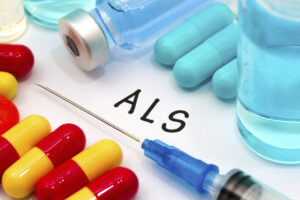August 9, 2023

We can help you learn what to expect from ALS in each stage.
Receiving a Lou Gehrig’s disease (also known as ALS) diagnosis also comes with a mountain of questions and concerns for both the person diagnosed and the people they love. What’s the cause for ALS? Where can I go for support? How do I know what to expect from ALS as the illness progresses?
There are roughly 30,000 Americans living with ALS, and that number grows with nearly 5,600 diagnoses every year. And although the exact cause is unclear, some research points to complex risk factors, such as a twofold risk of ALS in individuals who served in the Gulf War.
Everyone has different experiences with ALS, but the illness does progress in specific stages. Learning about these phases can help individuals diagnosed with ALS and those who care for them put into action the most appropriate care plan.
Continuum, the top provider of home care services in St. Louis, Kirkwood, Clayton, and the surrounding area, shares details below:
Initial Stages
- Symptoms may only impact one area of the body
- Milder symptoms may impact significantly more than this one region
- For some people, the initial impacted muscles are those used for speaking, breathing, or swallowing
Possible Symptoms:
- Slurred speech
- Poor balance
- Fatigue
- Stumbling when walking
- Weakened grip
Mid Stages
- Some specific muscles may be paralyzed, while some are weaker or totally unaffected
- You may notice twitching
- Signs of ALS are now more extensive
Possible Symptoms:
- Difficulties standing without assistance
- Possible uncontrolled and inappropriate crying or laughing, known as the pseudobulbar affect (PBA)
- Struggles with eating and swallowing, which can result in choking
- Difficulty breathing, especially when lying down
End Stages
- The individual with ALS needs full assistance to care for their needs
- They are unable to eat or drink by mouth
- Speaking may no longer be possible
Possible Symptoms:
- Breathing is considerably affected, resulting in fatigue, unclear thinking, headaches and susceptibility to pneumonia
- Mobility is dramatically impacted
- Paralysis in the majority of voluntary muscles
Receiving care from a professional caregiver, like those at Continuum, can increase the quality of life for individuals affected by ALS symptoms. Our care providers know what to expect from ALS and work with families to customize an individualized plan of care, allowing those with ALS to maintain dignity and the greatest level of independence at all times.
Call us any time at 314-863-9912, or contact us online to learn more about how our services can help someone you love.
